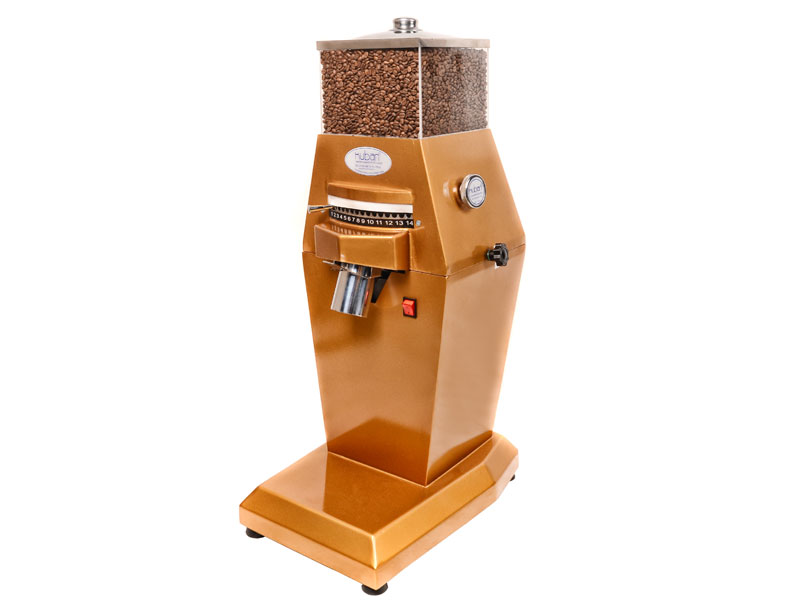Industrial Coffee Grinder Buying Guide for Serious Baristas
Industrial Coffee Grinder Buying Guide for Serious Baristas
Blog Article
Industrial Coffee Mill Guide: Boost Efficiency and High Quality
In the competitive landscape of coffee production, picking the appropriate commercial coffee mill plays an essential function in boosting both effectiveness and item high quality. Recognizing the nuances of different mill types and essential features-- such as customizable work settings and durable building-- can considerably influence the last taste profile of the coffee.
Understanding Mill Types
When selecting an industrial coffee mill, recognizing the different kinds available is vital for optimizing both taste extraction and operational efficiency. The two main kinds of mills are blade mills and burr grinders.

Eventually, selecting the ideal sort of grinder is important to maintaining quality and performance in coffee production, making it critical for companies to purchase top notch burr grinders for ideal results.
Secret Features to Take Into Consideration
Picking an industrial coffee grinder needs careful consideration of numerous crucial features that can substantially influence both performance and the overall coffee experience. One of the key facets to examine is the grinding device. Burr grinders are usually chosen over blade grinders, as they supply a consistent grind size, which is crucial for optimal removal and flavor.
An additional crucial function is the grinder's ability. Depending upon the quantity of coffee you require to process, select a model that can handle your demands without compromising rate or top quality. Furthermore, consider the grind setups offered. A versatile mill with numerous settings permits you to tailor the grind size to different developing techniques, enhancing the coffee's taste account.
The construction product likewise contributes in resilience and maintenance. Stainless steel elements often supply long life and are less complicated to clean up, which is essential for preserving hygiene standards. Last but not least, review the mill's sound degree, particularly in a busy coffee shop or production setting, where excessive sound can be turbulent. Purchasing a grinder that balances these features can considerably enhance both functional efficiency and the top quality of the coffee served.
Optimizing Grinding Refine
To accomplish the finest outcomes in coffee preparation, optimizing the grinding procedure is vital. The grind dimension significantly influences extraction, flavor, and general quality of the brewed coffee.


Additionally, keeping track of the grinding speed can maximize look at these guys the process. Slower grinding often produces less heat, preserving fragile tastes and scents. On the other hand, much faster grinding may generate excessive heat, negatively impacting the coffee's high quality.
Maintenance and Care Tips
Proper upkeep and treatment of commercial coffee mills are necessary for making certain optimal efficiency and longevity. Regular cleaning is the foundation of maintenance; deposit build-up can influence flavor and grinding efficiency. It is recommended to clean up the grinder after each use, wiping down the outside and eliminating any type of coffee premises from the burrs.
Additionally, inspect the grinding burrs for deterioration. Boring burrs can endanger work uniformity, so they need to be replaced as necessary. Industrial Coffee Grinder. Regularly calibrating the mill is additionally essential, as this preserves the desired grind size for numerous developing techniques
Lubrication of relocating parts need to be performed according to the maker's requirements, as this minimizes friction and lengthens the life reference of the devices. It is vital to utilize food-grade lubricating substances to make certain safety and security and conformity with wellness policies.
Last but not least, maintain the grinder in a completely dry and steady setting to avoid rust and corrosion. By adhering to these maintenance and treatment pointers, operators can improve the efficiency of their commercial coffee grinders while ensuring high-grade result and prolonged operational life.
Return on Financial Investment Analysis
Reviewing the return on financial investment (ROI) for industrial coffee grinders is crucial for companies looking for to enhance their coffee production capacities. An extensive ROI analysis helps identify the financial viability of investing in premium mills, enabling organizations to weigh the first costs against potential gains.
Evaluate the purchase rate of the grinder, including setup and any type of necessary alterations to existing facilities. High-performance mills commonly lead to decreased grinding time and increased throughput, which can substantially boost efficiency.
In addition, think about the impact on item quality. Industrial Coffee Grinder. Superior mills yield an even more consistent work size, which can enhance flavor accounts and consumer fulfillment, ultimately driving sales. By raising the quality of the end product, services can this link justify higher rates, resulting in raised revenue
Verdict
In summary, an industrial coffee grinder plays a pivotal role in enhancing both efficiency and product top quality within coffee manufacturing. Inevitably, the critical financial investment in a trusted mill adds considerably to enhanced income and competitiveness in the coffee industry.
In the competitive landscape of coffee manufacturing, choosing the best industrial coffee mill plays a crucial function in improving both efficiency and item top quality. The two primary kinds of mills are blade grinders and burr mills. Within the burr mill classification, there are flat burr mills and cone-shaped burr grinders, each with its benefits. Burr grinders are generally favored over blade mills, as they offer a regular work size, which is crucial for optimum extraction and taste.
In recap, an industrial coffee mill plays a critical role in boosting both performance and item top quality within coffee manufacturing.
Report this page